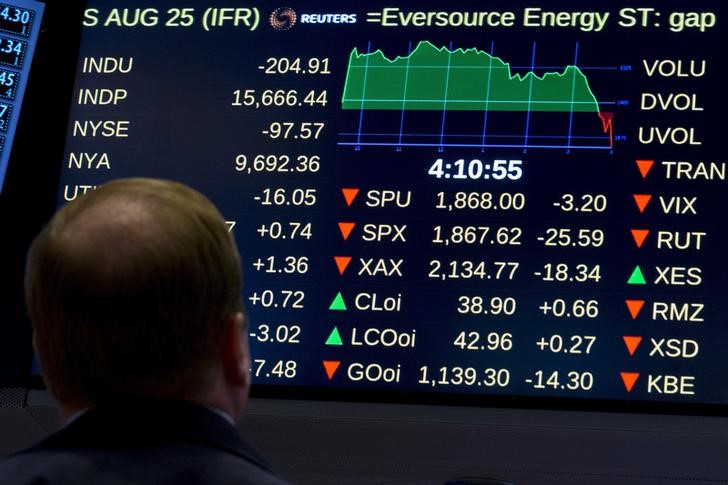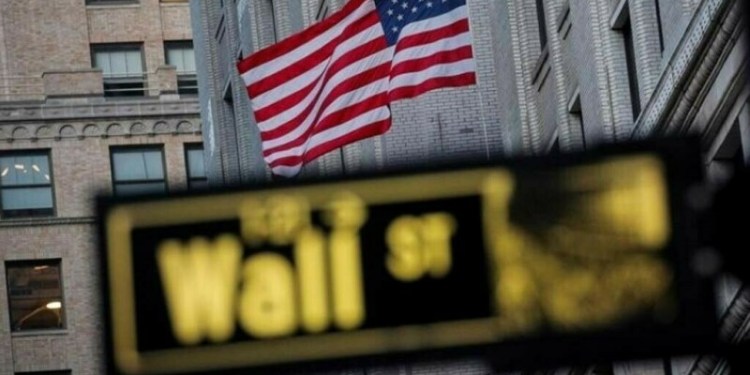
© Reuters.
By Geoffrey Smith
Investing.com — Microsoft and Alphabet have differing fortunes in the first quarter, as TikTok takes a bigger bite out of YouTube’s advertising revenue. The earnings flood continues with Meta, T-Mobile, Qualcomm, Ford and others later. Russia turns off the gas to Poland and Bulgaria as an EU embargo on Russian oil moves closer. Pending home sales and mortgage data are due. Here’s what you need to know in financial markets on Wednesday, 27th April.
1. Big Tech’s big divergence may spell trouble for Meta
Tech giants Microsoft (NASDAQ:MSFT) and Alphabet (NASDAQ:GOOGL) reported a sharp divergence in their fortunes for the first quarter, with Microsoft beating expectations thanks to a booming cloud-hosting business and a strong performance from LinkedIn (a reflection of trends in the labor market).
Alphabet, by contrast, fell well short of expectations as advertising revenue suffered both from increased competition from the likes of TikTok and from the increased willingness of consumers to get off YouTube now that they are no longer locked down.
Microsoft stock rose 5.3% in premarket trading while Alphabet fell 3.0% to what would be an 11-month low.
The relatively weak performance by Alphabet’s ad business looks likely to weigh on Facebook owner Meta Platforms (NASDAQ:FB) in the runup to its earnings after the close Wednesday.
2. Russia weaponizes energy supplies as oil embargo nears
Russia cut off gas supplies to Poland and Bulgaria, after the two former Soviet satellites, refused to pay for their gas in rubles rather than euros or dollars.
The weaponization of energy breaks with over 40 years of Russian and Soviet reliability in fulfilling its contracts and pushed European gas futures sharply higher for a second day.
The move should be seen as a warning shot to Russia’s biggest customers, Germany and Italy, coming a day after Germany sealed a deal with Poland that will greatly reduce its dependence on Russian oil, and thus make it easier for Germany to drop its opposition to an embargo. Under that deal, Germany will be able to source crude for its refineries from Poland’s import terminal at Gdansk.
The escalation of the Ukraine conflict’s economic dimension nonetheless weighed heavily on the euro, which fell to a five-year low against the dollar, and European stocks.
3. Stocks set to bounce – a bit – after positive late earnings burst
U.S. stocks are expected to bounce back from Tuesday’s drubbing, although they look far from recouping all of their losses – Tesla (NASDAQ:TSLA), for one, bouncing less than 3% premarket after its 12.8% slump in the previous session.
By 6:15 AM ET (1015 GMT), Dow Jones futures were up 400 points, or 1.2%, while S&P 500 futures were up 1.0% and Nasdaq 100 futures were up 1.1%.
Visa (NYSE:V) and Mondelez (NASDAQ:MDLZ) are both recovering in premarket more than they lost on Tuesday after posting better-than-expected first quarter results, while General Motors (NYSE:GM) and Chipotle (NYSE:CMG) stock are not quite back at the gain line, despite also beating. Texas Instruments (NASDAQ:TXN) is extending losses after warning of supply chain constraints late Tuesday. Mattel (NASDAQ:MAT) is surging after a WSJ report said it’s in talks to sell itself to private equity.
T-Mobile (NASDAQ:TMUS), General Dynamics (NYSE:GD), American Tower (NYSE:AMT), CME Group (NASDAQ:CME), Kraft Heinz (NASDAQ:KHC) and Humana (NYSE:HUM) – among many others – all report early, while Qualcomm (NASDAQ:QCOM), Amgen (NASDAQ:AMGN), PayPal (NASDAQ:PYPL) and Ford (NYSE:F) head the late reporters.
4. Dollar hits new highs; retail and wholesale inventories, pending home sales due
There will be fresh insights on to how fast the housing market is weakening when pending home sales data for March are published at 10 AM. They’ve fallen for the last four months against a background of surging prices (up 20% year-on-year according to S&P Global and rising mortgage costs.
The Mortgage Banking Association’s weekly data on mortgage applications and rates are due at 7 AM ET. The 30-year mortgage rate hit a 13-year high of 5.20% last week, while applications have fallen for the last six weeks.
Retail and wholesale inventory data at 8:30 may also be interesting for any light they shed on how quickly final consumer demand is cooling.
Expectations of monetary tightening and recession in Europe drove the dollar index to a new two-year high overnight.
5. Oil back above $100 on EU embargo prospects; U.S. inventories rise
Crude oil prices consolidated back above $100 a barrel, as the prospect of an EU embargo on Russian oil grew more realistic. Any such move would not only force European buyers to source alternative supplies elsewhere, it would also hit Russia’s production capability, given that its storage tanks and pipelines would likely hit capacity almost immediately, tightening the global market further.
Such problems have already led to a marked drop in Russian oil output this month, according to unconfirmed reports. Russia’s largest producer Rosneft, meanwhile, failed to find a single buyer for its regular export tender this week.
By 6:25 AM ET, U.S. crude futures were up 0.5% at $102.19 a barrel, while Brent futures were up 0.5% at $105.16 a barrel.
That’s despite a surprisingly large rise in U.S. inventories last week, according to the American Petroleum Institute. The U.S. government’s data are due at 10:30 AM ET, as usual.
Source: Investing.com




























